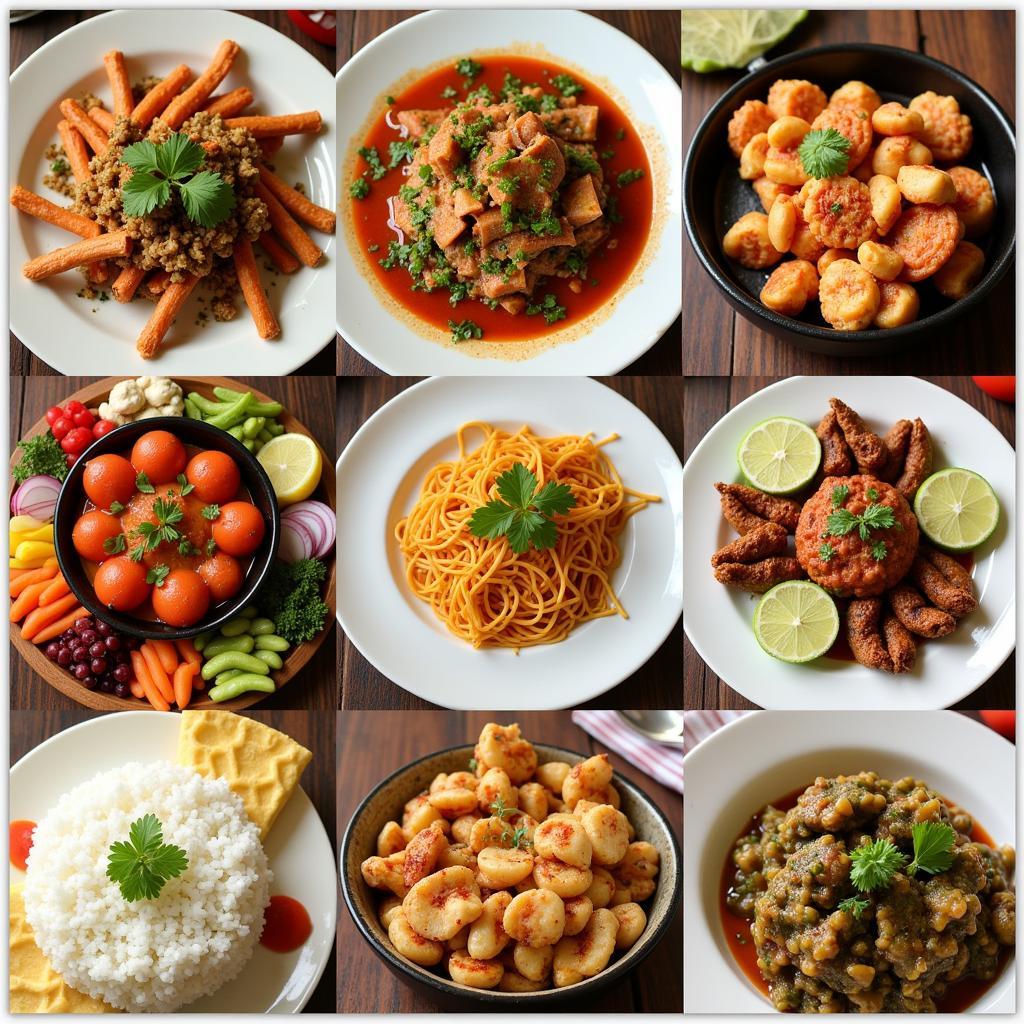Have you ever wondered how to say “Bạn thích ăn món gì?” in English? It’s a simple question that can spark a world of delicious conversations! Whether you’re chatting with new friends, traveling abroad, or simply practicing your English skills, knowing how to talk about your favorite foods is essential.
Asking Someone About Their Favorite Food
The most common way to ask someone about their favorite food is:
- “What’s your favorite food?”
This is a straightforward and friendly way to start the conversation. You can also use variations like:
- “What kind of food do you like?”
- “What’s your go-to dish?”
- “If you could only eat one food for the rest of your life, what would it be?” (For a more fun and challenging question!)
Responding to “What’s Your Favorite Food?”
Now, let’s flip the script! When someone asks you “What’s your favorite food?”, you can answer in a variety of ways:
Simple and Direct:
- “My favorite food is [your favorite food].”
- “I love [your favorite food].”
- “I’m a big fan of [your favorite food].”
Adding Details:
- “I love [your favorite food] because it’s so [adjective] and [adjective].” (e.g., “I love pizza because it’s so cheesy and flavorful.”)
- “My favorite food is [your favorite food]. I could eat it every day!”
- “I’m really into [your favorite food] lately. Have you tried it?”
Sharing a Story:
- “My favorite food has to be [your favorite food]. It reminds me of my [family member/friend] who makes the best [your favorite food].”
- “I first tried [your favorite food] when I was [age/location] and I’ve been hooked ever since.”
 woman-eating-pizza
woman-eating-pizza
Talking About Food You Don’t Like
Just as it’s important to be able to talk about food you love, it’s also helpful to know how to politely express your dislikes. Here are a few phrases you can use:
- “I’m not really a fan of [food you dislike].”
- “I’m not so keen on [food you dislike].”
- “[Food you dislike] isn’t really my thing.”
- “I’m not crazy about [food you dislike].”
If you have allergies or dietary restrictions, it’s perfectly fine to mention them:
- “I’m allergic to [food you’re allergic to], so I can’t eat that.”
- “I’m [vegetarian/vegan/gluten-free], so I don’t eat [food you don’t eat].”
Expanding Your Food Vocabulary
The more you talk about food in English, the more confident you’ll become! Here are some additional words and phrases to enrich your culinary conversations:
Types of Cuisine:
- Italian food
- Mexican food
- Chinese food
- Japanese food
- Indian food
- Thai food
- French food
Describing Food:
- Delicious
- Tasty
- Savory
- Sweet
- Sour
- Spicy
- Creamy
- Crunchy
 various-cuisines
various-cuisines
Using “What’s Your Favorite Food?” in Different Situations
This simple question can open doors to various conversations. Here are a few scenarios where it comes in handy:
- Meeting new people: Asking about someone’s favorite food is a great icebreaker and conversation starter.
- Traveling: You can use this question to learn about local specialties and find the best places to eat.
- Dating: Food is a common interest, and discussing favorite foods can help you find common ground with a potential partner.
Conclusion
Learning how to talk about your favorite food in English is a delicious way to enhance your language skills and connect with people from all walks of life. So next time you’re looking to spark a conversation, don’t be afraid to ask, “What’s your favorite food?” You never know what tasty discoveries await!
FAQs
1. What if I don’t know the English word for a specific food?
Don’t worry! You can try describing it or using a translation app.
2. Is it rude to ask someone about their favorite food?
Not at all! It’s a common and friendly conversation starter.
3. What are some other ways to say “delicious” in English?
You can use words like “tasty,” “yummy,” “scrumptious,” or “mouthwatering.”
4. What if I’m a picky eater?
It’s okay to be honest about your preferences. Just be polite and explain your reasons.
5. Can you recommend some resources for learning more food-related vocabulary?
Sure! Check out online dictionaries, cooking shows, and food blogs.
For more tips on improving your English conversation skills, you can check out our articles on viết về môn học yêu thích tiếng anh and người thích khám phá tiếng anh. Remember, practice makes perfect!